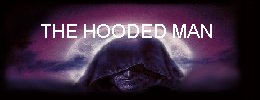Swa he ne forwyrnde worold-raedenne,
Thonne him Hunlafing Hildeleoman
billa selest, on bearm dyde,
Thaes wareon mid Eotenum ecgecuth.
Beowulf 1142-1145 (Old English)
So he not refused world-ruler,
Then him Hun-Bequest Battle-Flame
Sword best, on bosom lay,
Thus be with Joten, edge-known.
(Direct translation into modern English).
The Sword of AEtla (Attila the Hun) passed from the 'Hun' to the Engel-Kin, wielded by Hengest ('Geist of Ingwe'). This sword was named 'Battle-Flame' and was the 'Bane of the Joten'. Hengest was the incarnation of Ingwe upon Earth, sent to lead the Engel-Kin to these islands to crush the power of the Joten which they held over the islands - through the Roman Empire. Thus, in 449CE the Engel Kin took back the control of these islands which they had held before the Romans invaded.
In 9CE the German Hero - Herman or Arminius - crushed the growing power of Rome when his Cherusci Tribe, allied with other Germanic Tribes, defeated Varus and three Roman Legions - around 15,000 Romans. This he did by luring the Roman Legions far into the Teutoberg Wald and funnelling them into narrow paths through which they could travel only in small numbers. Thus the German Wyrm crushed the Roman Wyrm. (In the Welsh Mabinogian the Saxons raised the 'Golden Coiled Wyrm' on their sails.) The Roman Legions were annihilated.
In the Netflix Series Barbarian created in Germany we find this tale told in an inspiring manner. The 'Roman Empire' is likened to the Fenris Wolf that seeks to devour the world, but the heroes and heroine are shown to be bonded by their slaying of a Wolf and each keeping a Wolf's Tooth around their neck. The spark that kindles the revolt is shown here as a simple stealing of the Roman Eagle, enough to give courage to some who lacked it before because of the might and power of Rome. Rome, of course, was founded by Romulus and Remus who were suckled by a She-Wolf. Woden (The Wolf-God) fights against Fenris (The Wolf) at Ragnarok.
The horse is a symbol of force, a swift-moving force, and that is why it is symbolic of Hengest and Horsa who appear at the Dawn-Time of an era when a new nation is created. In Beowulf it is the time when winter has gone and the spring is beginning to bloom that the Hun-Sword is passed to Hengest. Since this is the Battle-Flame it is associated with Ingwe and with Fire. We are today at the Dawn-Time of a new era.










No comments:
Post a Comment